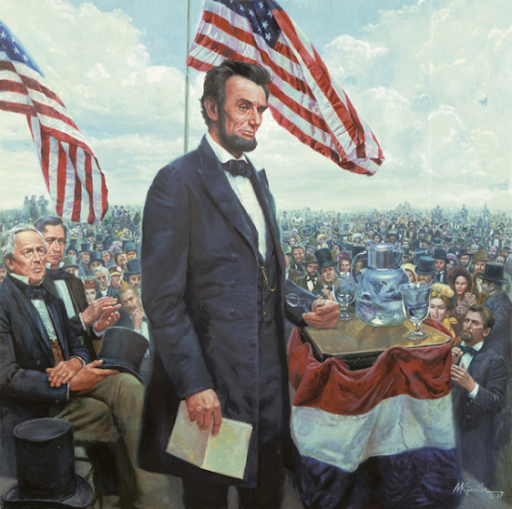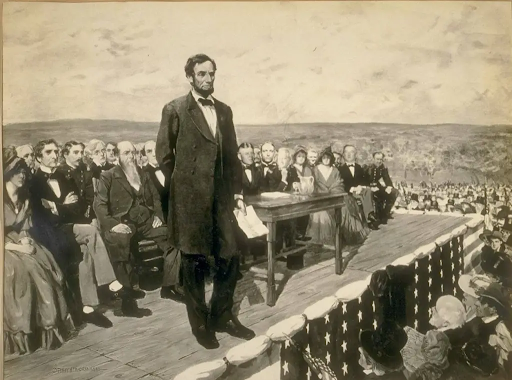
Abraham Lincoln was a great leader, he earned huge fame in history. He was a lawyer a renowned politician and the sixteenth president of America. He is remembered as a martyr and a national hero for his countless efforts to preserve the Union through the Civil War and to demolish slavery. He was a fierce opponent of slavery. Whenever he found an opportunity he freed all the slaves after wars.
He conveys his precious thoughts to humanity through his speeches. He delivered a lot of speeches to make a change in the world, but his Geteysbrug address is the most famous one in history. It was about 272 words long and he delivered in just two minutes, but its effects were long-lasting. This address illustrates the power of words.
Lincoln delivered this speech on November 19, 1863, in Gettysburg to sanctify a national military cemetery in honor of Union fighters who had fallen in the momentous Battle of Gettysburg, fought four months earlier during the American Civil War.
Although not being the primary speaker that day, Lincoln’s brief address would become inscribed in the annals of American history. In it, he described the principles of human equality glorified in the Declaration of Independence and associated the sacrifices made during the Civil War with the desire for “a new birth of freedom” and the critical preservation of the Union, founded in 1776, and its purpose of self-governance. These are Lincoln’s golden words that changed history in just two minutes:

“Four score and seven years ago our fathers brought forth, upon this continent, a new nation, conceived in Liberty, and dedicated to the proposition that all men are created equal.
Now we are engaged in a great civil war, testing whether that nation, or any nation so conceived, and so dedicated, can long endure. We are met on a great battlefield of that war. We have come to dedicate a portion of that field, as a final resting place for those who here gave their lives, so that that nation might live. It is altogether fitting and proper that we should do this.
But, in a larger sense, we can not dedicate, we can not consecrate we can not hallow this ground. The brave men, living and dead, who struggled here, have consecrated it far above our poor power to add or detract. The world will little note, nor long remember what we say here, but it can never forget what they did here.
It is for us, the living, rather, to be dedicated here to the unfinished work which they who fought here, have, thus far, so nobly advanced. It is rather for us to be here dedicated to the great task remaining before us that from these honored dead we take increased devotion to that cause for which they here gave the last full measure of devotion that we here highly resolve that these dead shall not have died in vain that this nation, under God, shall have a new birth of freedom and that government of the people, by the people, for the people, shall not perish from the earth.”
Abraham Lincoln
November 19, 1863
The Union succeeded in the Civil War, slavery was expelled, and the values of freedom and equivalency encountered a “new birth.” However, the continued fight for sovereignty and equivalency has persisted to this day. Abraham Lincoln’s lasting legacy has impact ages after him.





